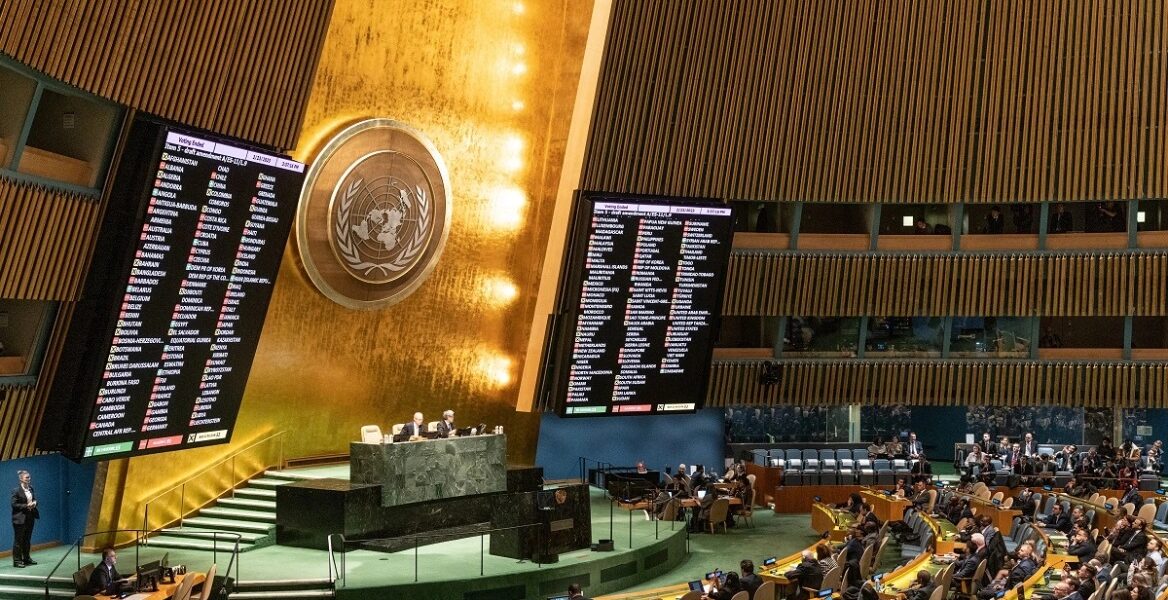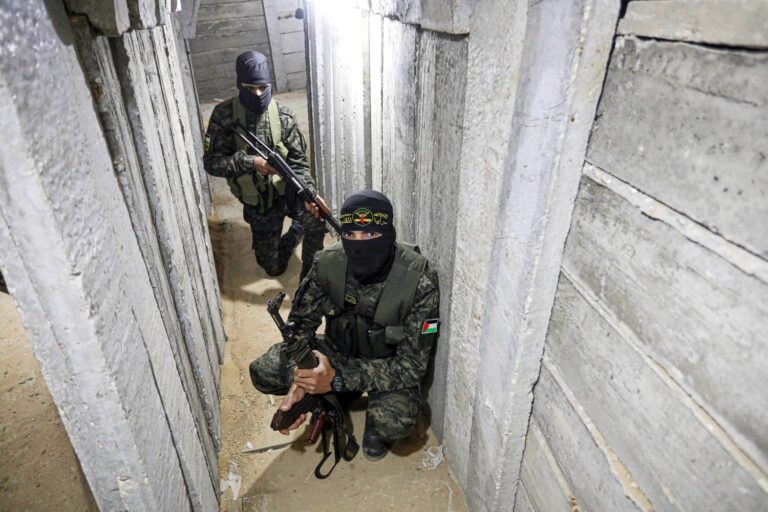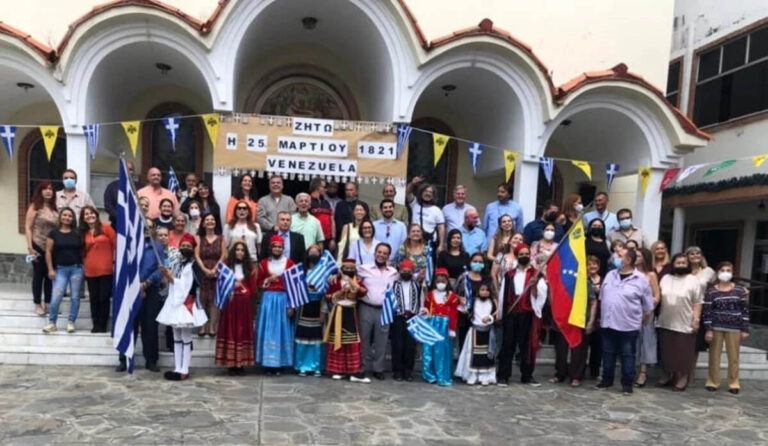A resolution calling for an immediate ceasefire in Gaza, which made no mention of Hamas, was overwhelmingly passed by the United Nations General Assembly on Friday, raising the question of why Greece chose to abstain from the vote.
“Greece remains consistent in its principled foreign policy and from the first moment of the crisis in the Middle East maintained a balanced stance, respecting the principles and values of international law, as a force of stability in the wider region, highlighting the obligation to protect civilians and create humanitarian routes,” diplomatic sources noted.
The same sources pointed out that “for this reason, it abstained from voting on the approval of a related draft resolution of Arab countries within the framework of the United Nations.”
Regarding the vote, diplomatic sources outlined the following:
1. Abstention in the context of the UN is in no way equivalent to a vote against. On the contrary, it is creative, in the sense that the country is not counted among those present, thus facilitating the achievement of a qualified two-thirds majority.
2. Greece joined the majority of European Union countries: 15 countries abstained against 8 who voted in favor and 4 who voted against.
3. Greece was creative by proposing at the stage of the internal procedures some specific interventions, which could have facilitated the wider majority.
4. Greece voted in favor of Canada’s amendment for the explicit condemnation of the terrorist acts by Hamas, the adoption of which would allow the passing of the resolution by all countries. Eventually, although voted by the majority, it did not gather the required two-thirds majority (88 in favor and 55 against).
The Resolution
The resolution called for an immediate ceasefire in Gaza, the release of all civilians, the protection of civilians and international institutions, and ensuring the safe passage of humanitarian aid into the Strip.
The initiative was nonbinding but highlighted the overwhelming international support for the Palestinians amid Israel’s military campaign in response to the October 7 Hamas onslaught.
Israel has rejected calls for a ceasefire in Gaza, saying that it is committed to toppling Hamas to prevent another mass assault like the one that took place three weeks ago, when more than 1,400 people were killed. Gaza terrorists also took some 230 people — mostly civilians — as hostage into the enclave, releasing four of them since.
The US has also rejected calls for a ceasefire, suggesting that it would amount to a victory for Hamas. It has, however, begun suggesting that “humanitarian pauses” be considered to allow more humanitarian aid into Gaza and to ensure safe passage of civilians looking to flee the areas that the IDF is bombing most intensively in its aerial campaign across the Strip.
Israel insists it’s only targeting Hamas terrorists and infrastructure but many civilians are believed to be among those killed.
The Hamas-run health ministry in Gaza claims roughly 7,000 Palestinians have been killed by Israel, but those numbers cannot be independently verified and include Palestinian terrorists killed fighting the IDF as well as civilians killed as a result of errant rockets launched by terror groups.
One-hundred and twenty countries voted in favor of the non-binding resolution introduced by Jordan, while just 14 — United States, Austria, Croatia, Czechia, Fiji, Guatemala, Hungary, Israel, Marshall Islands, Micronesia, Nauru, Papua New Guinea, Paraguay and Tonga — voted against it.
Forty-five countries abstained, including Australia, Canada, Finland, Germany, Greece, India, Iraq, Italy, Japan, the Netherlands, Poland, South Korea, Sweden, Tunisia, Ukraine and the UK.
France, Belgium, Ireland, Norway and Switzerland were among European nations that voted in favor.
Canada sought to have an amendment added to the resolution to include a condemnation of Hamas and a majority of members backed the proposal, but it fell short of the two-thirds majority needed to be adopted. Eighty-eight countries voted for the amendment, 55 voted against and 33 abstained.
Jordan’s ambassador to the UN called the amendment an effort to “whitewash” Israeli “atrocities” in Gaza.
Israel fumed after the vote, with Foreign Minister Eli Cohen decrying the “despicable” resolution and insisting that “Israel intends to eliminate Hamas just as the world dealt with the Nazis and ISIS.”
UN Ambassador Gilad Erdan angrily dismissed the resolution, saying Israel would continue to defend itself.
“This is a dark day for the UN and for mankind,” Erdan said, vowing Israel will use “every means” in fighting Hamas.
“Today is a day that will go down as infamy. We have all witnessed that the UN no longer holds even one ounce of legitimacy or relevance,” he added.
Hamas welcomed the passage of the resolution and called for its immediate implementation, including the clause calling for the entry of fuel and relief materials for civilians in the Gaza Strip.
The rival Palestinian Authority’s foreign ministry also welcomed the resolution, saying that as Israel’s campaign “reaches a new peak of brutality,” there is “a solid international position rejecting Israel’s unhinged aggression.”
In a speech ahead of the vote, US Ambassador to the UN Linda Thomas-Greenfield panned the Jordanian resolution for failing to mention Hamas.
“It is outrageous that this resolution fails to name the perpetrators of the October 7th terrorist attacks: Hamas,” Thomas Greenfield said.
She also noted that the resolution doesn’t include the word “hostages,” though, it did “call for the immediate release of all civilians, demanding their safety, well-being and humane treatment in compliance with international law.”
The US envoy clarified that Palestinian civilians, UN personnel and humanitarian workers still must be protected, even though the Biden administration does not support a ceasefire.
She then highlighted the story of Al Jazeera’s Gaza bureau chief Wael al-Dahdouh, whose wife, two children and grandchild were killed in an Israeli airstrike earlier this week.
“We must not become numb to the pain and the suffering of people like Wael Al-Dahdouh… My heart breaks for Wael. My heart breaks for all -– all of the innocent civilians who are caught up in this crisis,” she says.
Pakistan’s UN Ambassador Munir Akran drew loud applause when he said the Arab-drafted resolution deliberately didn’t condemn or mention Israel or name any other party. “If Canada was really equitable,” Akram said, “it would agree either to name everybody — both sides who are guilty of having committed crimes — or it would not name either as we chose.”
On Thursday, during the first day of the debate on the resolution, nearly every speaker backed the Jordanian draft resolution, except for Erdan who told the assembly, “A cease-fire means giving Hamas time to rearm itself, so they can massacre us again.”
Erdan played a video of a Hamas terrorist trying to decapitate a Thai worker with a garden hoe during the October 7 onslaught in southern Israel, in a speech that was received with silence.
His Palestinian counterpart Riyad Mansour, however, earned loud applause when he finished his address, highlighting the global mood of the moment.
“If you do not stop it for all those who were killed, stop it for all those whose lives we can still save,” Mansour said.ja
Source: Greek City Times







